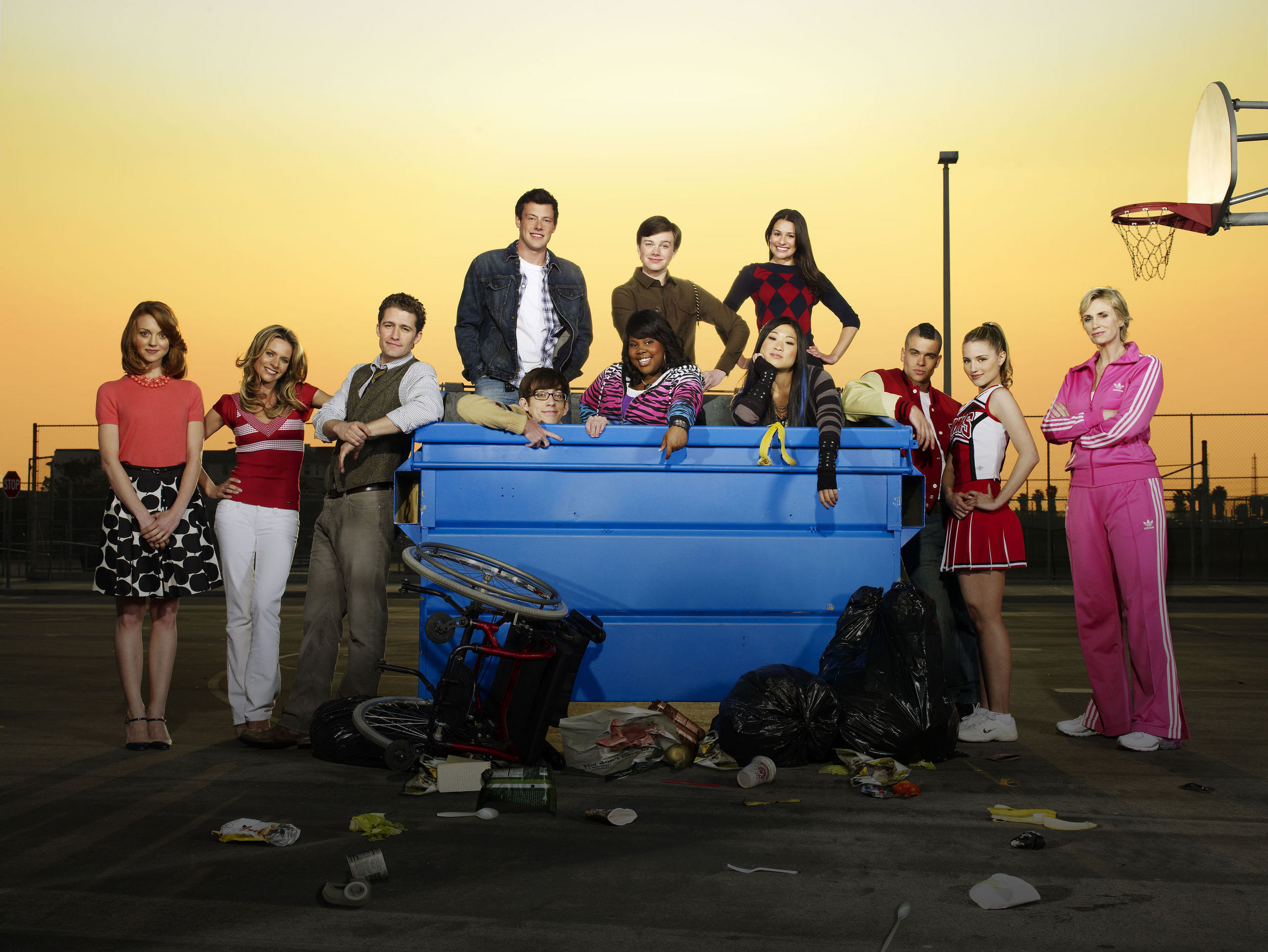Unveiling The Death Of Glee: A Journey Through Its Rise, Fall, And Legacy
Let’s talk about something that once lit up our screens and became a cultural phenomenon: the death of Glee. It was more than just a TV show; it was a movement that brought music, drama, and quirky characters into our living rooms. But like all great things, Glee eventually faded into the background, leaving fans wondering what went wrong and why it ended the way it did. Today, we’re diving deep into the story behind its demise, exploring the highs and lows, and uncovering the lessons we can take away from this iconic series.
Now, I know you might be thinking, “Why are we talking about Glee again?” Well, here’s the thing: Glee wasn’t just another show. It was groundbreaking in its own way, blending pop culture, musical performances, and heartfelt storytelling. It gave us characters we loved, hated, and everything in between. But as the years rolled on, the magic started to fade, and the show’s decline became inevitable. We’re gonna break it all down for you, so buckle up.
This isn’t just about nostalgia or pointing fingers. It’s about understanding how a show that once ruled the airwaves ended up losing its spark. From creative decisions to shifting audience preferences, we’ll explore every angle of the death of Glee. So, whether you were a die-hard fan or just tuned in occasionally, this article is for anyone who wants to know the full story behind the rise and fall of one of TV’s most memorable shows.
- Best Desi 49 Porn Watch Now Hot Indian Xxx 2025
- Top Indian Adult Web Series Where To Watch What To Expect
Table of Contents
- Introduction to Glee
- The Rise of Glee
- Biography of Glee
- Key Characters and Creators
- The Death of Glee
- Reasons for the Decline
- Audience Reaction
- Legacy of Glee
- Lessons Learned
- Conclusion
Introduction to Glee
Glee was a musical comedy-drama that aired from 2009 to 2015. It followed the lives of a high school glee club called New Directions and their journey to find fame and acceptance through music. Created by Ryan Murphy, Brad Falchuk, and Ian Brennan, the show quickly became a hit, blending catchy covers of popular songs with compelling storylines. But as time went on, the show struggled to maintain its initial charm, leading to its eventual downfall.
At the heart of Glee was its ability to connect with viewers on an emotional level. The characters were flawed yet relatable, and the music was a mix of timeless classics and modern hits. However, as the seasons progressed, the formula began to wear thin, and audiences started to drift away. We’ll dive deeper into why this happened later, but first, let’s take a look at the rise of Glee.
The Rise of Glee
When Glee first premiered, it was like nothing anyone had seen before. It wasn’t just another musical show; it was a fresh take on the genre that resonated with audiences of all ages. The pilot episode introduced us to characters like Rachel Berry, Finn Hudson, and Kurt Hummel, each with their own unique quirks and ambitions. The show quickly gained traction, earning critical acclaim and a massive fanbase.
One of the biggest factors in Glee’s success was its use of music. Each episode featured a mix of covers and original songs, many of which became chart-topping hits. The show also tackled important social issues, such as bullying, LGBTQ+ rights, and self-acceptance, making it more than just entertainment. For a while, Glee was unstoppable, but as with any show, the honeymoon phase couldn’t last forever.
What Made Glee Unique?
- Its diverse cast of characters
- The integration of music into storytelling
- Its willingness to tackle tough topics
- Its ability to stay relevant with pop culture references
Biography of Glee
To fully understand the death of Glee, we need to look at its origins and evolution. Glee was born out of a desire to create something different in the world of television. Ryan Murphy, the show’s creator, wanted to bring the magic of musical theater to a wider audience. And for a while, it worked. Glee became a cultural phenomenon, spawning merchandise, albums, and even a Broadway concert.
Here’s a quick rundown of Glee’s journey:
| Year | Event |
|---|---|
| 2009 | Premiere of the first season |
| 2011 | Peak popularity and critical acclaim |
| 2013 | Beginning of decline in ratings |
| 2015 | Final season and series finale |
Key Characters and Creators
No discussion of Glee is complete without mentioning the people who made it what it was. From the talented cast to the visionary creators, everyone played a crucial role in shaping the show. Let’s take a closer look at some of the key figures:
Cast Members
- Rachel Berry (Lea Michele) – The ambitious diva with a big heart
- Finn Hudson (Cory Monteith) – The lovable jock with a passion for music
- Kurt Hummel (Chris Colfer) – The fashion-forward teen with a strong sense of self
- Santana Lopez (Naya Rivera) – The sassy cheerleader with a hidden vulnerability
Creators
- Ryan Murphy – The driving force behind Glee’s vision
- Brad Falchuk – Co-creator and writer
- Ian Brennan – Co-creator and writer
The Death of Glee
So, what exactly led to the death of Glee? It wasn’t just one thing; it was a combination of factors that ultimately contributed to the show’s decline. As the seasons went on, the storytelling became repetitive, and the music lost its originality. Add to that the departure of key cast members and the challenges of staying relevant in a rapidly changing media landscape, and you’ve got a recipe for disaster.
But it wasn’t all bad. Even in its final seasons, Glee managed to deliver some memorable moments and heartfelt storylines. The show’s legacy lives on, not just in the minds of its fans but in the impact it had on the entertainment industry as a whole.
Turning Points in Glee’s History
- The departure of Cory Monteith and the subsequent tribute episode
- The introduction of new characters in later seasons
- The shift in focus from McKinley High to New York City
Reasons for the Decline
Now, let’s break down the reasons why Glee’s popularity began to wane. One of the biggest issues was the repetitive nature of the storylines. As the show progressed, it became harder to come up with fresh ideas, leading to a feeling of stagnation. Another factor was the loss of key cast members, which changed the dynamic of the show and left fans feeling disconnected.
In addition to these internal issues, Glee also faced external challenges. The rise of streaming platforms and the changing preferences of audiences made it harder for traditional network shows to compete. Glee tried to adapt, but in the end, it couldn’t keep up with the times.
External Factors
- The rise of streaming services like Netflix and Hulu
- Changing audience preferences towards binge-worthy content
- Increased competition from other musical shows
Audience Reaction
The reaction to Glee’s decline was mixed. Some fans were heartbroken to see the show lose its magic, while others felt that it had run its course and was ready to end. Social media was ablaze with discussions about the show’s future, with both criticism and praise pouring in from all sides.
Despite the mixed reviews, Glee remained a beloved show for many. Its impact on popular culture and its ability to bring people together through music and storytelling cannot be denied. Even today, fans gather online to reminisce about their favorite episodes and characters.
Legacy of Glee
Although Glee may be gone, its legacy lives on. The show paved the way for other musical dramas and inspired a new generation of actors and musicians. It also left a lasting impression on the entertainment industry, proving that music and storytelling can coexist in a powerful way.
One of the most significant legacies of Glee is its influence on representation. The show featured a diverse cast of characters and tackled important social issues, setting a standard for future shows. It showed that entertainment can be both fun and meaningful, and that’s something worth celebrating.
Lessons Learned
So, what can we learn from the death of Glee? First and foremost, it’s important to recognize when a show has reached its natural endpoint. Trying to force a series to continue beyond its prime can lead to disappointment and disillusionment. Additionally, staying relevant in a rapidly changing media landscape requires constant innovation and adaptation.
Glee taught us that music and storytelling can create something truly magical, but only if they’re done with authenticity and passion. It also reminded us of the power of representation and the importance of giving a voice to underrepresented groups.
Conclusion
In conclusion, the death of Glee was a complex and multifaceted event that involved both internal and external factors. While the show may have faded from the spotlight, its impact on popular culture and the entertainment industry remains undeniable. Glee was more than just a TV show; it was a movement that brought people together through music and storytelling.
So, the next time you find yourself humming a Glee cover or reminiscing about your favorite episode, remember the magic that made this show so special. And if you’re a creator or fan of TV shows, take a moment to reflect on the lessons Glee taught us about storytelling, representation, and staying relevant in a changing world.
Got thoughts on the death of Glee? Share them in the comments below, and don’t forget to check out our other articles for more insights into the world of entertainment. Thanks for reading!



Detail Author:
- Name : Athena Rodriguez
- Username : heathcote.catalina
- Email : kaley35@mosciski.com
- Birthdate : 1987-06-19
- Address : 191 Titus Points Emmiestad, WY 85818-7389
- Phone : +1-806-739-3690
- Company : Berge, O'Reilly and Padberg
- Job : Curator
- Bio : Cumque est natus ut enim modi. Culpa qui corrupti maiores ducimus. Optio nesciunt saepe sequi enim. Voluptas at dignissimos molestiae asperiores dolore molestias doloremque.
Socials
facebook:
- url : https://facebook.com/nickfadel
- username : nickfadel
- bio : Veritatis distinctio autem nulla. Ab et dolorum facilis id iure.
- followers : 4244
- following : 1653
instagram:
- url : https://instagram.com/nick_fadel
- username : nick_fadel
- bio : Voluptas ipsa non dolor et commodi modi sit. A qui expedita rerum quidem veritatis.
- followers : 1022
- following : 2228
tiktok:
- url : https://tiktok.com/@nick_fadel
- username : nick_fadel
- bio : Repudiandae quidem adipisci sit aut voluptas praesentium.
- followers : 6150
- following : 14